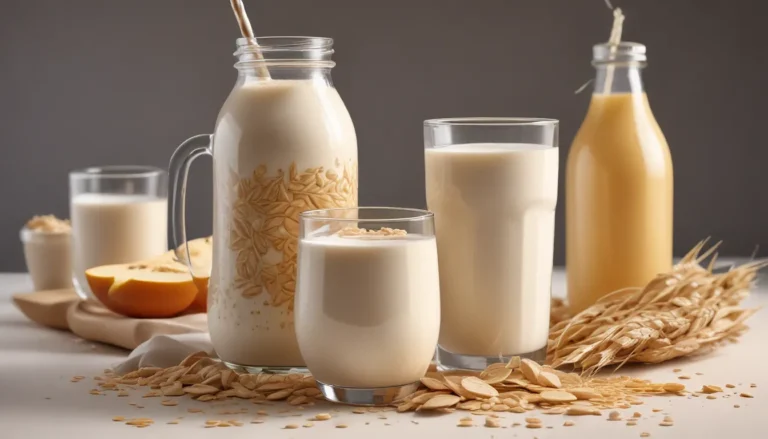The pictures in our articles might not always show exactly what the text is talking about. We use these images to make the article more interesting and eye-catching. They are there to add to the text, but not to replace it or show every detail.
Are you a fan of the iconic baguette, that classic French bread loved for its crispy crust and soft interior? Whether you enjoy it on its own, as a base for sandwiches, or paired with delicious spreads and cheeses, the baguette has undoubtedly carved its place in the hearts of food enthusiasts worldwide. Let's embark on a culinary journey as we explore the nutritional benefits, interesting facts, and cultural significance of this versatile bread.
Unraveling French Heritage
The baguette, a symbol of French culinary excellence, traces its roots back to early 19th-century France. Since then, it has become an essential part of French culture and cuisine, symbolizing tradition and craftsmanship in the culinary world.
The Tale of Shape and Name
The word "baguette" in French translates to "wand" or "stick," perfectly capturing the long and slender shape that defines this bread. Its iconic form has become synonymous with the art of French baking, reflecting precision and expertise in every loaf.
Crafting the Traditional Recipe
A typical baguette recipe involves simple ingredients like flour, water, yeast, and salt. Through a meticulous process of fermentation and shaping, the dough is transformed into the signature long loaves that we all recognize. Baked to perfection, the baguette's aroma and texture are a testament to the time-honored baking traditions.
Crispy Exterior, Soft Interior
The magic of a baguette lies in its contrasting textures - the crispy crust achieved through high heat baking and steam, and the soft, airy interior that melts in your mouth. The harmonious blend of crunch and fluffiness creates a sensory experience that delights the senses.
Nourishing Nutritional Composition
While indulging in the delightful taste of baguettes, it's essential to be mindful of their nutritional content. Moderation is key when it comes to incorporating them into a balanced diet. Let's explore some key nutritional components of baguettes:
- Carbohydrates: Baguettes are rich in carbohydrates, serving as a valuable source of energy to fuel your day.
- Protein: While not a significant source of protein, baguettes still contribute a moderate amount of this essential nutrient to your diet.
- Fat: With low fat content, most of the caloric value in baguettes comes from carbohydrates.
- Vitamins: Baguettes offer essential B vitamins like thiamin, riboflavin, and niacin, supporting energy production and nervous system function.
- Minerals: Iron and trace amounts of selenium found in baguettes play vital roles in oxygen transport, red blood cell production, and antioxidant support.
Embracing Dietary Fiber
Baguettes also contain a moderate amount of dietary fiber, crucial for digestive health, satiety, and weight management. By incorporating whole grain alternatives, you can enhance the fiber content and nutrient profile of your bread choice.
Crafting Balanced Meals
Pairing your baguettes with protein-rich fillings such as lean meats, fish, or plant-based options can transform a simple bread snack into a satisfying and nutritionally balanced meal. This combination ensures you're fueling your body with a mix of macronutrients to support overall health and well-being.
Exploring Whole Grain Variations
For an added nutritional boost, opt for whole grain baguettes made from whole wheat or other whole grain flours. These variants offer increased fiber content and a broader array of nutrients compared to traditional white flour baguettes, making them a wholesome choice for your daily bread consumption.
Savoring the Baguette Experience
In conclusion, the baguette is more than just a bread; it's a cultural symbol of French tradition and culinary excellence. By savoring its taste and exploring its nutritional benefits, you can enjoy this versatile loaf as part of a well-rounded diet. So, indulge in the charm of a baguette while appreciating its contribution to a balanced and flavorful culinary experience.
Answering Common Questions About Baguettes
Are baguettes gluten-free?
No, traditional baguettes are made with wheat flour and contain gluten. However, gluten-free alternatives using rice or almond flour are available for individuals with gluten sensitivities.
Can baguettes be part of a weight loss diet?
Baguettes can be enjoyed in moderation as part of a weight loss diet when paired with nutritious fillings and whole grain options. Portion control and mindful eating are key to incorporating baguettes into a weight management plan.
How long do baguettes stay fresh?
Baguettes are best enjoyed fresh on the day of baking. Proper storage in a paper bag or bread box can help maintain their crustiness for up to a day or two.
Are there gluten-free alternatives to traditional baguettes?
Yes, gluten-free baguette options made from alternative flours like rice flour, tapioca starch, or a blend of gluten-free flours cater to individuals with gluten sensitivities.
Can baguettes be frozen for later use?
Yes, freezing baguettes can extend their shelf life. It's recommended to slice them before freezing for convenient, individual servings that can be thawed as needed.
Trustworthy Content, Inspiring Exploration
As you delve into the world of baguettes and French culinary delights, rest assured that our commitment to delivering accurate and engaging content remains unwavering. Each fact shared here is a result of user contributions, ensuring a diverse range of insights and information for your exploration. Our dedicated editors uphold the highest standards of accuracy and authenticity, guaranteeing that the facts you discover are not only fascinating but credible. Trust in our commitment to quality as you embark on a journey of learning and discovery.
Join us in celebrating the artistry of French baking and the delightful allure of the baguette!






